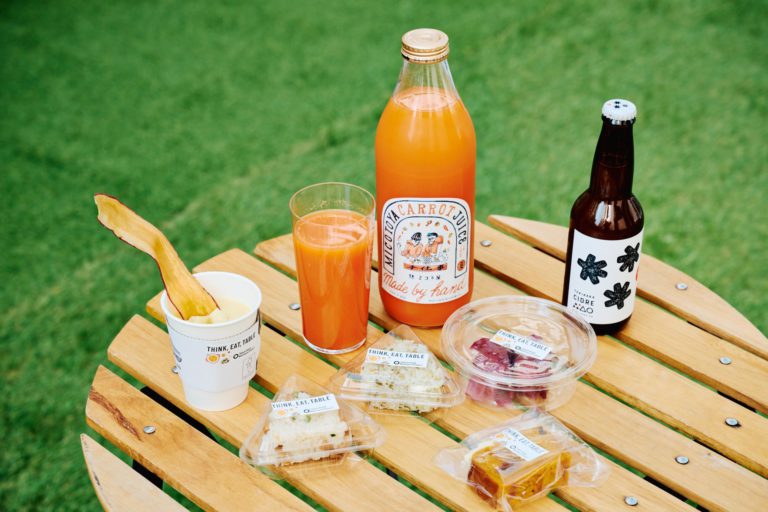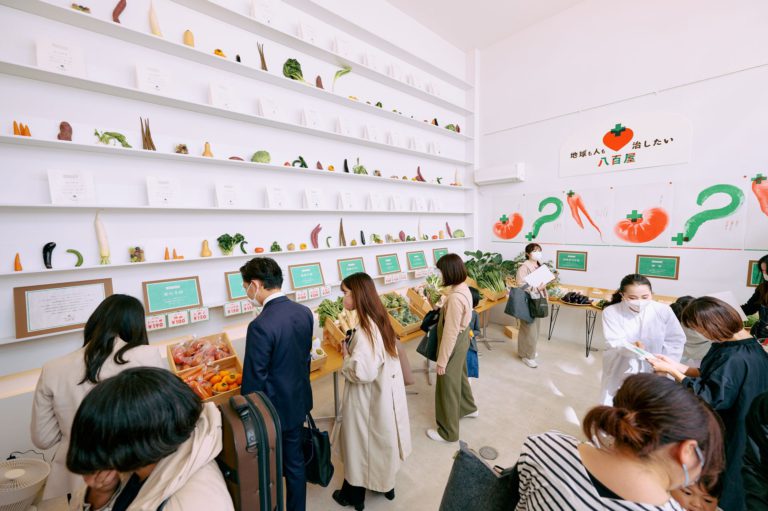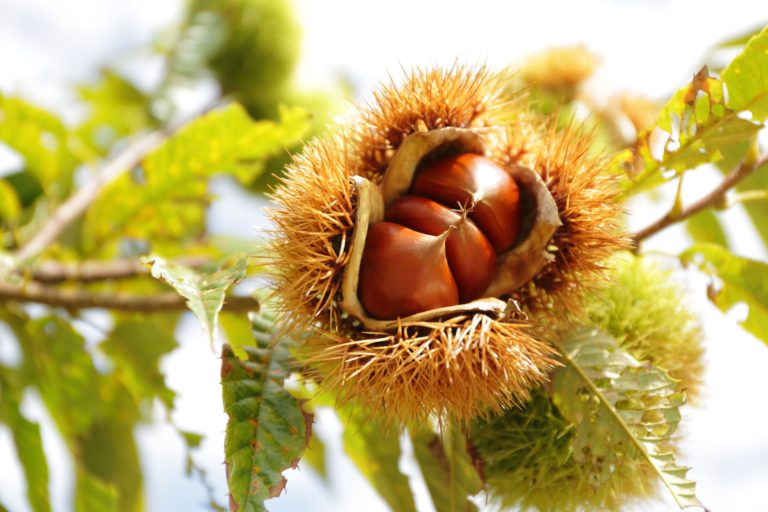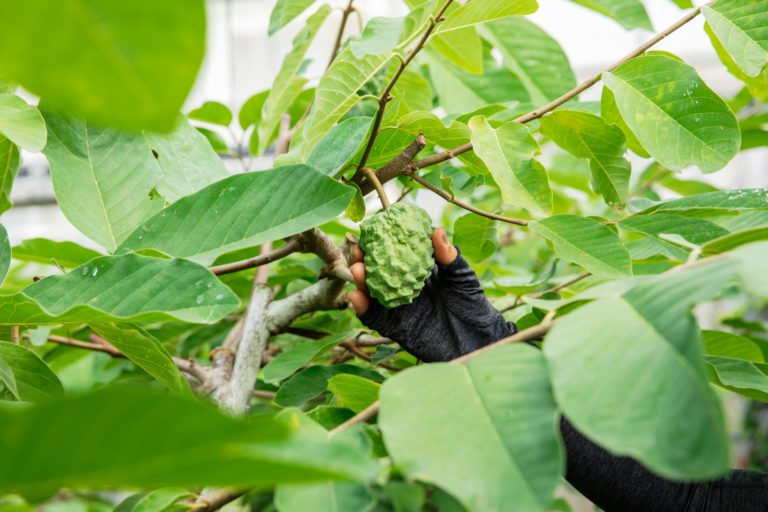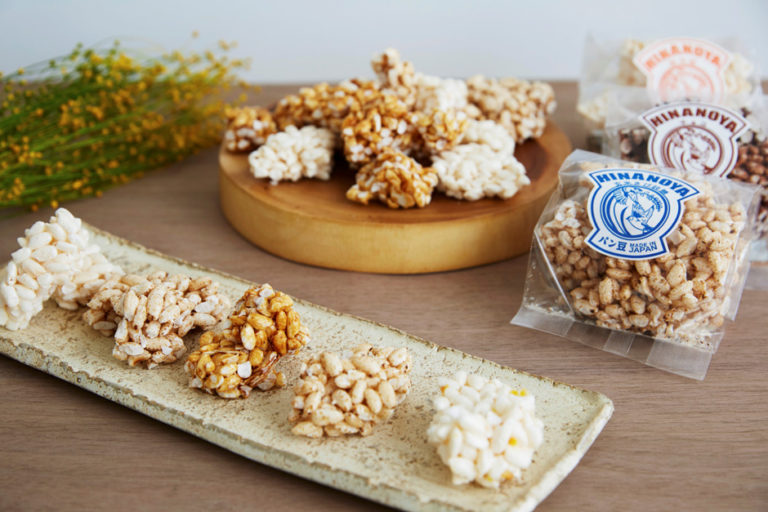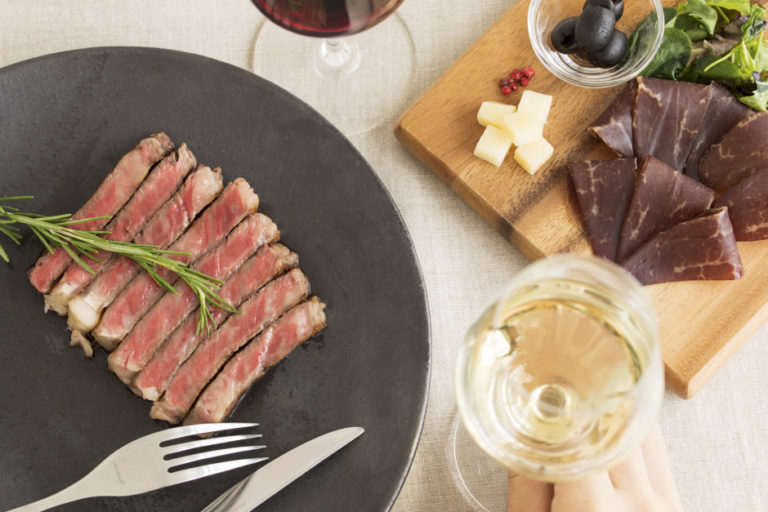THINK, EAT, TABLE: Tackling Food Loss with Delicious Dishes
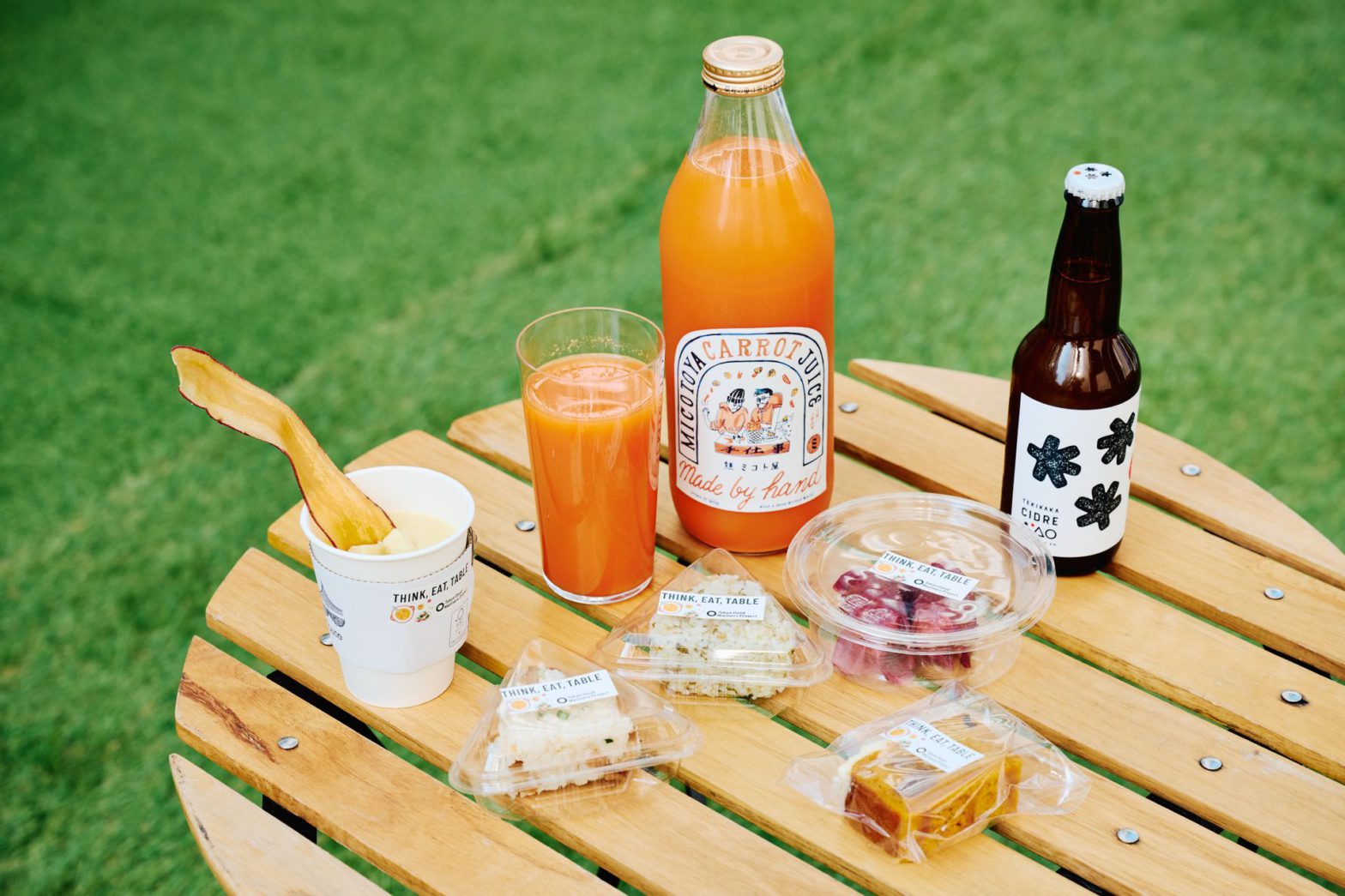
This article looks at the initiatives we carried out at Hama House by including some of the ingredients that we have covered in the past in the boxed lunches sold at the café on weekdays as well as in the food served for a fall event called Hamacho Autumn Session on November 3.
Tackling food loss by eating delicious dishes
We organized the THINK, EAT, TABLE event in collaboration with the Fuku Gohan Project hosted by Tokyo Good Manners Project. The Fuku Gohan Project is an initiative for thinking about and tackling the issue of food that is thrown away without being eaten. The initiative originated by taking a close look at Japanese culture, which has the idiom, “There’s good fortune in the last helping.” It aims to promote action for reducing food loss through the concept of “mottainai,” a word that represents a good-mannered sensitivity to avoid waste based on Japanese aesthetics.
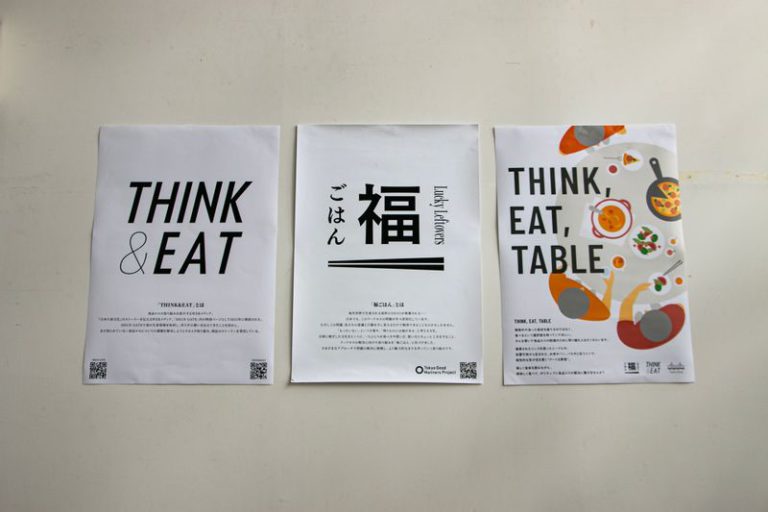
Meanwhile, THINK&EAT conveys human emotion as it covers production workplaces and measures taken as well as the people involved in these activities. We aim to achieve positive results by encouraging people to enjoy delicious meals made with nonstandard ingredients, rather than letting these ingredients go to waste. This allows people to tackle food loss without even realizing it. With this in mind, we chose the name “THINK, EAT, TABLE” for our collaborative event with the Fuku Gohan Project.
Fun to look at and delicious to eat
For this event, we aimed to tackle the issue of food loss with great-tasting dishes using Nobeoka Menma, Chibavege, VEGHEET, and Hanapanchun Monogatari that we previously covered in the THINK&EAT series.
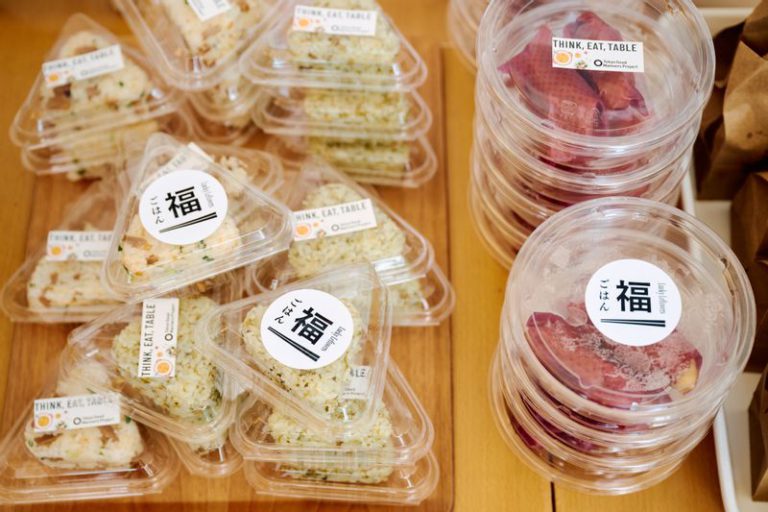
The Nobeoka Menma and Hanapanchun Monogatari were used in rice balls, and the Chibavege “arty vegetables” were used for soups and cakes. Sweet potato cakes were wrapped in VEGHEET sheets to make an eye-catching dessert that looks just like a fresh sweet potato.
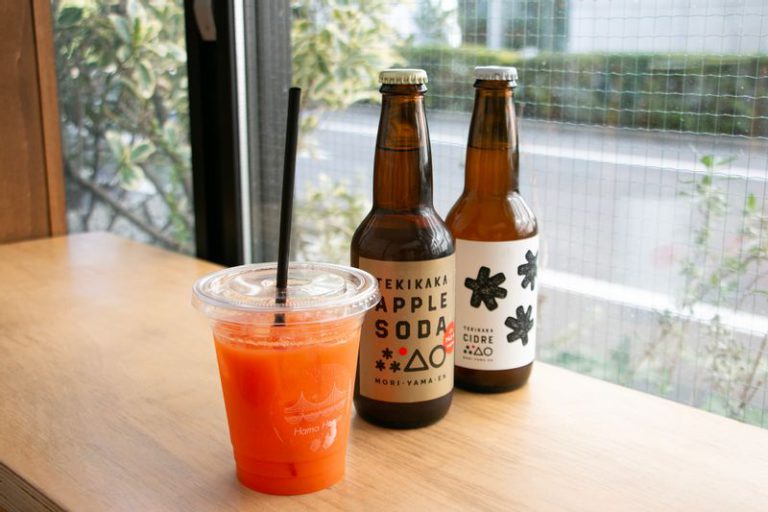
The drinks served at the event included carrot juice from the greengrocer Seika Micotoya made with nonstandard carrots, as well as cider and soda made with thinned apples. The store also sold dog treats from the “mellowbear” brand made with nonstandard ingredients.
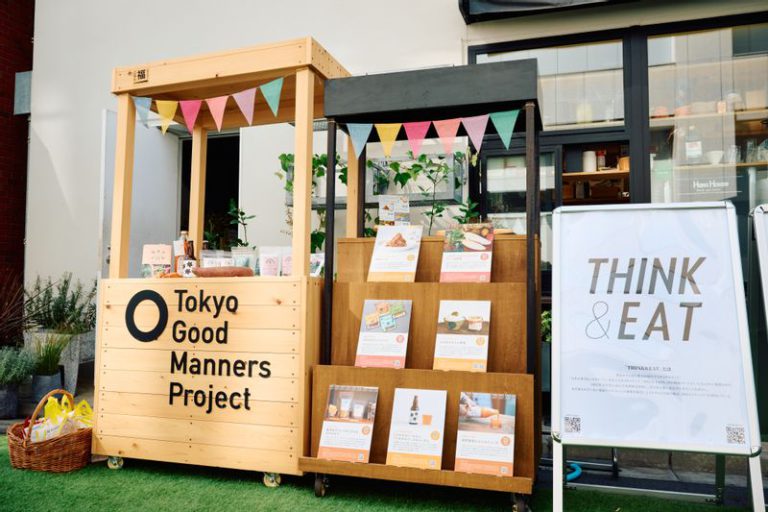
Efforts to tackle food loss in everyday boxed lunches
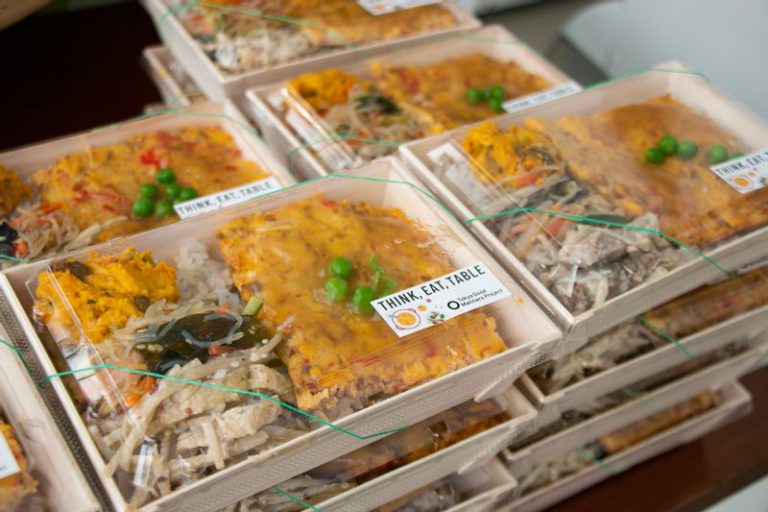
For a fixed period in November, we also organized a collaboration with THINK&EAT for the boxed lunches sold on weekdays at Hama House. These boxed lunches included different assortments each day, using ingredients showcased in THINK&EAT. Some ingredients were used as they are, while others were adapted into a wide range of dishes. The boxed lunches were sold out every day during the collaboration and were well received among local residents and workers.
The café also put up posters indoors, distributed leaflets, and installed panels that described the producers of the ingredients. In this way, we carried out measures to help many people learn about food loss and engage with this issue.
We will continue to cover people, products, and initiatives involved in tackling food loss in our THINK&EAT series.

